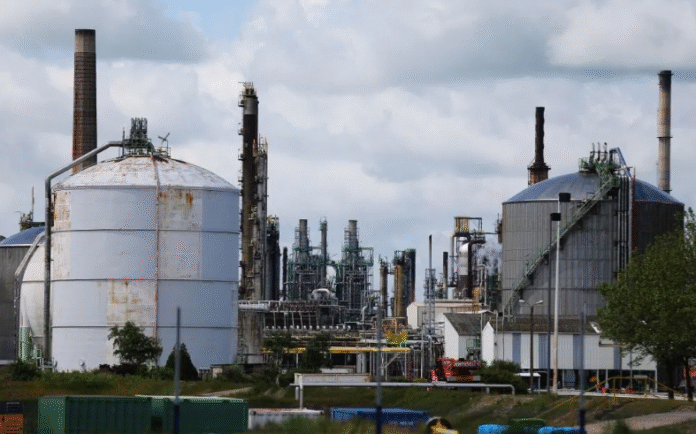Refineries Choose to Pay Fines Over Upgrading – Is the System Broken?
A high-level government committee has raised concerns over the effectiveness of current penalties imposed on oil refineries that continue to produce fuel below Euro-II quality standards. Despite regulations introduced in 2017, many refineries have opted to pay fines rather than invest in upgrading their operations—prompting calls for a complete overhaul of the penalty structure.
Tasked by PM, Committee Questions Status Quo
Formed by Prime Minister Shehbaz Sharif, the committee—headed by Petroleum Minister Ali Pervez Malik—was set up to tackle the declining consumption of locally refined fuel and the slow pace of modernization in the refining sector. During a recent meeting, members concluded that existing fines have little to no impact, as non-compliant refineries simply absorb the cost and carry on business as usual.
Economic Excuses vs. Environmental Risks
Minister of State for Finance Bilal Azhar Kiani didn’t mince words, asking whether the government should continue enabling this complacency. He highlighted the environmental and health implications of substandard fuel and urged for decisive steps in the short and medium term to drive change—possibly including a reevaluation of tax exemptions currently enjoyed by the industry.
In response, representatives from the Oil and Gas Regulatory Authority (Ogra) noted they had already sought feedback from refineries about the possibility of harsher fines. Refineries pushed back, citing financial and operational hurdles. Some even warned that heavier penalties could push them toward economic collapse—essentially arguing that the punishment might do more harm than good.
Phased Upgrade Plan Floated Amid Tax Disputes
Recognizing the refineries’ role in national energy security, Ogra proposed a more pragmatic approach: a phased upgrade plan spread over five years, as laid out in the Refining Policy 2023. However, the success of this strategy hinges on resolving long-standing policy bottlenecks—particularly related to sales tax exemptions that have complicated financing for modernization projects.
According to officials, at least two refinery upgrade projects are already on hold due to this unresolved tax issue, underscoring how policy gaps continue to stall progress on cleaner fuel production.
Parliamentarians Sound Alarm on Harmful Additives
Adding another layer to the conversation, National Assembly Energy Committee Chairman Syed Mustafa Mahmud warned of the serious health effects caused by additives like MMT and NMA in low-quality fuel. He suggested the government consider placing an environmental surcharge on each litre of fuel to account for its public health impact. Mahmud also criticized the broader lack of urgency in the sector, warning that even with financial incentives or penalties, many refineries may continue dragging their feet.
He floated the idea of importing high-octane (high RON) motor spirit for blending with domestically produced low-RON fuel—a stopgap measure to meet quality benchmarks while reducing reliance on harmful chemicals.
Symbolic Penalties Won’t Cut It, Warns Cabinet Official
Meanwhile, the Cabinet Division cautioned against simply increasing fines without addressing the core financial issues. Officials said that symbolic penalties are unlikely to compel refineries to act, and may only cement the existing impasse. Instead, they called for a coordinated strategy that combines financial restructuring, environmental accountability, and firm deadlines.
Deadline Proposed: Five Years to Go Clean or Get Out
The most concrete proposal from the meeting was a hard five-year deadline for all refineries to meet Euro-V standards. After that period, producing fuel below those standards would be outright banned—a move that would finally force an industry-wide shift, assuming the financial and policy groundwork is laid in time.
In summary, while the government seems ready to tighten the screws, the success of any reform will depend on balancing environmental responsibility with economic realities—and ensuring that the rules, once set, are actually enforced.


